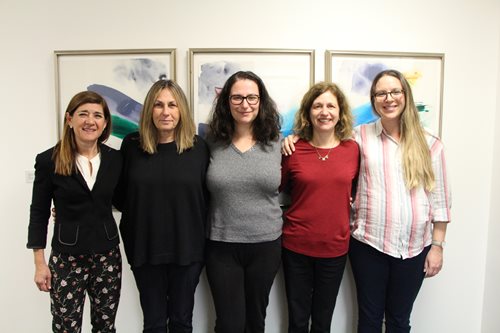October 29, 2019
Over the last few years, Baycrest’s social work team noticed an increase in calls related to young onset dementia. While these calls have increased, the number of programs available hasn’t.
“Most of the programs and services are tailored towards a geriatric population, but all the people we were in touch with were under the age of 65,” says Elaine Kohn, a Baycrest social worker. “These individuals weren’t interested in attending programs for an older population because they couldn’t identify with many of the programs and are much more physically able. For example, music programs for a geriatric program play music from the 1940’s, but this group of individuals wanted 70’s and 80’s music, like the Rolling Stones or Billy Joel.”
Young onset dementia accounts for about two to eight per cent of all dementia cases in Canada, according to the Alzheimer Society of Canada. About 16,000 Canadians under the age of 65 live with this condition.
To tackle this problem, the team developed and tested a spin class intervention, an activity that both the person with dementia and their partner can do together.
“Exercise is good for the brain and we were looking to offer an activity that both partners could do,” says Lisa Benaim, a Baycrest social worker involved in the program. “We needed an activity that was safe and low-impact, and didn’t require a lot of skill. Spinning was the right fit since participants are strapped into the spin bike and we wanted to offer something that wasn’t offered in a medical setting.”

The six-week program was trialed at the Prosserman JCC last winter with eight couples. A specialized spin instructor led the group during the class. Afterwards, social workers led facilitated discussions. Couples also had a chance to socialize amongst themselves. The intervention was evaluated by researchers at Baycrest’s
Kunin-Lunenfeld Centre for Applied Research & Evaluation.
“We heard many positive things from the participants and saw that many of the couples benefitted greatly from the program,” says Kohn, who also helped to deliver the program. “We have a few members of the group who no longer have the ability to speak, yet they were swaying along to the music, smiling and dancing on their bikes.”
Many of the spousal caregivers found that the program helped them relieve some of their stress by giving them the opportunity to discuss and speak openly about some of the challenges they faced, she adds.
This project was supported by the Centre for Aging + Brain Health Innovation (CABHI). It was delivered by
Baycrest’s Senior Counselling and Referral Services team, including social workers Anne Max and Susana Braslavski.
With additional funding, the group could offer the program on a regular basis.
Support this work by donating online or calling Baycrest’s donations line at 416-785-2875.